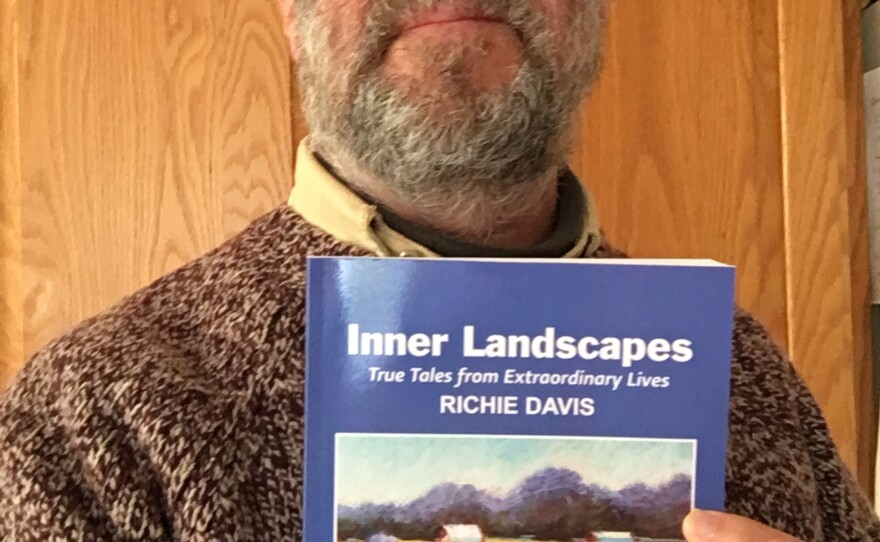Richie Davis has more than four decades of stories behind him reporting for The Recorder newspaper in Franklin County, Massachusetts. He's now retired and has a new book out, a compilation of newspaper stories called "Inner Landscapes: True Tales From Extraordinary Lives."
In a socially distanced interview — we were about 10 miles apart — Davis said that when interviewing his subjects, he always tried to be present and in-person.
Carrie Healy, NEPR: Does that give you a better outcome?
Richie Davis: I think it's always better to speak with someone looking them in the eye, and sharing their space, and being intimate in that way.
Your book features a collection of stories that appeared over decades that you've been reporting. Each of the people are all super interesting and unique. What's it like for you to have somebody open up and describe, for example, otherworldliness? I'm thinking about Elwood Babbitt, in recounting conversations that the spirits from some sort of great beyond had with him.
Well, that's a good way of expressing it. It was kind of going into the great beyond with him.
Very seldom do I know where we're going when we begin an interview. And I of course knew about Elwood, but what a charming man I found, and discovered what it was like to go out into the great beyond with him. He was totally comfortable with it. And I was comfortable with him, whether I believe that or not. ]
You know, for the most part, I believe that he was there for those people. And that was a wonderful visit that we had.
It's one thing to be able to compile these stories into a book of your own making. But how difficult was it at the time, as a reporter, to get some of these people really summed up and not edited down into bland characters for the pages of The Recorder?
That was certainly a challenge. Although I worked with my editors closely, and I think they understood the importance of the stories that I was writing, and sometimes we bent length limits.
How did you run across some of these characters?
Franklin County is geographically a small place, and at the time, especially of the writing, it was a place where a lot of people are interconnected. And so some of these people I knew, like Matthew Leighton, for example, or Wally and Juanita [Nelson]. I just knew them running across them. Others I knew, [like] Norton Juster.
I covered so many communities in my time. I was almost literally running across the county daily. So I would encounter these people, or I would encounter people who told me about these people. Some of these people I interviewed multiple times, and this is the story that I chose to to run. But for Wally and Juanita, for example — I interviewed them dozens of times, and got to know them pretty well.
Even somebody like Jessica Murrow — I did, I think, two or three stories at different times in different ways. A lot of those those stories were all really probing stories. But this was the one that I chose that spoke to me. So it wasn't hard to find these people at all.
One story that stands out to me is about the "drowned towns" of what is now the Quabbin Reservoir. That story struck me — maybe it's during a pandemic — but it was touching.
The Quabbin story is really probably the only story there, in the first section, that's not about personalities so much as the experience of these four towns.
What an incredible larger tragedy that was faced by this whole region. Being able to sit down with the folks in that story and get their take on what they experienced and what they remember. And they weren't bitter about having lost their homes.
Elwyn Doubleday and Lois Doubleday Barnes were very just loving people. They and other folks that I've spoken with from the four towns all gave it a different piece of the puzzle that all these hundreds of families went through.
I think it's really important that we we find a way to tell their story, so that other people now coming on will remember what they went through.






